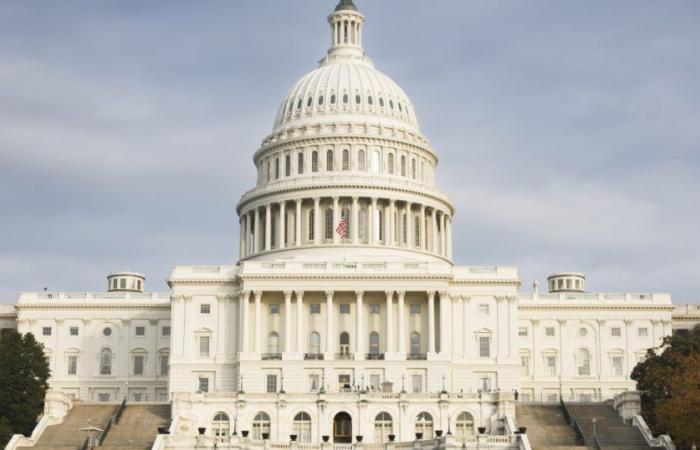Donald Trump was elected president of the United States a little over a month ago. Since then, there has been a lot of talk about a free trade agreement with the United States. For three years now, the United States has been Switzerland’s main export market, ahead of Germany. On a quantitative level, it is a success story for both countries, but on a qualitative level, we can only notice the absence of a free trade agreement. Especially since Switzerland has concluded such agreements with all other export partners in the top 10.
The United States is far too important for Switzerland’s prosperity for our country to give up on guaranteeing market access and improving it through a free trade agreement.
An agreement would strengthen the positive dynamics of trade and investment
The figures on the volume of bilateral trade with the United States speak for themselves. Swiss exports of goods have more than tripled over the last twenty years to reach around 49 billion francs in 2023. As for the United States, they exported goods worth 15 billion francs to Switzerland. Is the US trade balance deficit for goods, which reached 34 billion francs, in favor of Switzerland a problem? No, we must put these figures into perspective. The picture changes if we also take into account trade in services: Indeed, these trades show a significant surplus in favor of the United States, which, in 2023, sold services worth 50 billion francs to Switzerland. Conversely, Swiss service exports to the United States reached a value of 27 billion francs. A free trade agreement can strengthen the dynamics of trade in both directions, for both goods and services.
Furthermore, Switzerland is the target of high direct investments from the United States, in the field of information technology for example – which will further stimulate trade in services. Switzerland is one of the seven main direct investors in the United States. When it comes to investments in research and development, it even appears in the top three of all foreign partners. Current calls for the launch of new negotiations for a free trade agreement with the United States must in any case be supported. As we have seen, the economic arguments are in favor of trying again.
We must try again without preconceptions
What about realpolitik? The last attempt to negotiate a free trade agreement with the United States failed miserably in 2006. After successful exploratory talks, the then Federal Council could not bring itself to launch negotiations. The least we can say is that the Americans were slightly surprised: Switzerland first lobbied intensively and effectively in favor of an agreement, before withdrawing. This doesn’t make sense! In fact, yes, it had one. The Federal Council has given up on starting negotiations, fearing that the United States will demand a large opening of the market for agricultural products, in this case for beef. In politics, such facts also matter. Under these conditions, are the current calls for a new attempt feasible? One might think not, because Swiss agricultural policy has not evolved much since then and a major opening of the market for American agricultural products is not realistic. But to think like this is to close oneself to possibilities.
The United States is too important a partner
An ambitious approach is needed: A free trade agreement with the United States is unrealistic, unless we get down to it! As protectionist as Switzerland is in terms of agricultural policy, with its 9 million consumers, it does not weigh heavily compared to the scale of American agricultural exports. It should therefore be possible to find solutions in this area, especially since Switzerland has a leading economic diplomacy – just like the United States. We must also correct the idea that the Swiss agricultural market is compartmentalized – Switzerland’s net self-sufficiency rate is just 53%. In reality, Switzerland is a large net importer of agricultural products and foodstuffs. Faced with a global economy that is becoming increasingly protectionist, we have every interest in protecting our export interests as best we can. The United States is the only major trading partner with which we do not have a free trade agreement. It’s time to step out of our comfort zone and make the impossible possible. Switzerland has already proven time and time again that it can do this!






